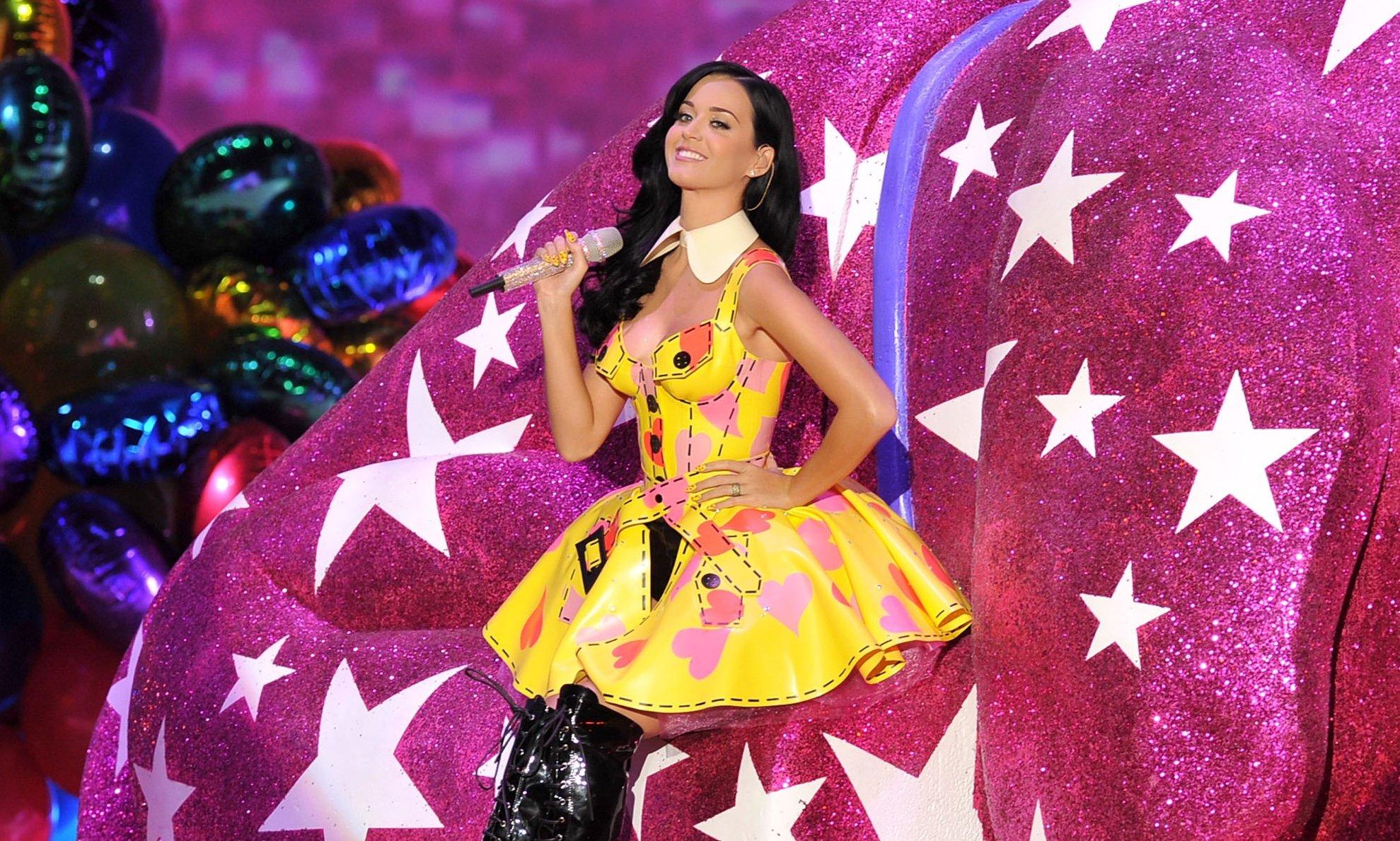Photo: Taylor Hill/FilmMagic
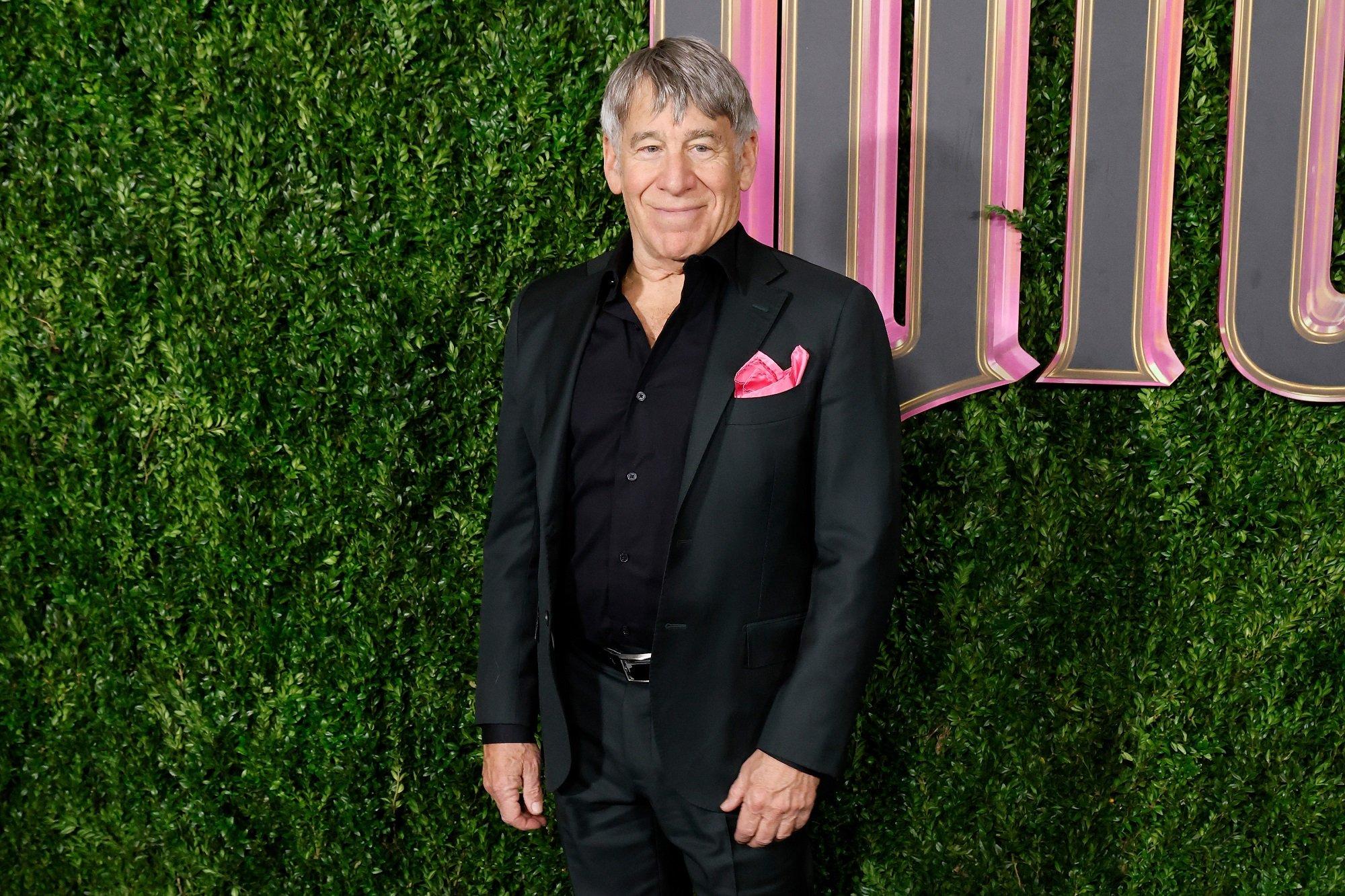
'Wicked' Composer Stephen Schwartz Details His Journey Down The Yellow Brick Road
Ahead of the brand-new movie musical, Schwartz details the writing and composition process, and which classic lines Ariana Grande was adamant about keeping in the script.
Many years we have waited for a gift like Wicked to appear on the silver screen.
The Broadway show and its iconic songs like "Popular" and "Defying Gravity" might not exist without the persuasion of Stephen Schwartz. The four-time GRAMMY-winning composer was instrumental in transforming Gregory Maguire’s 1995 novel about the Wicked Witch of the West’s pre-Dorothy life into a musical, before a movie.
A prequel to 1939’s The Wizard of Oz, "Wicked" the musical flew onto Broadway in 2003 starring Idina Menzel as Elphaba (the Wicked Witch) and Kristin Chenoweth as Glinda (the Good Witch). It earned a GRAMMY Award for Best Musical Theater Album and has become a mega juggernaut in pop culture. Twenty-one years later, Wicked: Part I arrives in movie theaters on Nov.22 starring GRAMMY Award winners Cynthia Erivo as Elphaba and Ariana Grande as Glinda. The soundtrack will also be released on the same day.
Schwartz, who wrote the music and lyrics for Wicked, was part of the creative team who helped bring this beloved story to new audiences. "I am so thrilled with this album for many reasons. Not obviously just the performances of Cynthia and Ariana, but the sound of the orchestra, that incredibly gorgeous, giant orchestra," Schwartz tells GRAMMY.com of the 85 musicians who recorded the songs and score at AIR Studios and Abbey Road in London.
The musical has spent over two decades on Broadway, and the film fittingly brings together many Glindas and Elphabas from the stage. Several Broadway actors are background vocalists on the album, which was recorded in part in New York City.
Wicked: Part II is expected to debut in theaters on Nov. 21, 2025, with two new songs written by Schwartz — one for each leading lady. Ahead of part one, GRAMMY.com spoke with Schwartz all about revisiting his songs for film, working with Grande and Erivo on their vocal tracks, and the musical differences between the stage and film adaptations of Wicked.
What do you think of the film after waiting all these years?
I was really happy with the movie. They were originally trying to make a movie, before I talked them out of that in 1997 and into doing a stage musical. I first heard about the book Wicked [The Life and Times of the Wicked Witch of the West] from a friend, she basically told me the title and the idea. I thought it was a genius inspiration of [author] Gregory Maguire's to have the idea to make the Wicked Witch of the West the protagonist of a story. I was immediately interested in that concept for a musical.
I discovered that the rights had been sold to Universal who were in the process of developing it as a non-musical movie. I worked my way up the Universal food chain to get to Marc Platt, who was running Universal Pictures at the time, and persuaded him not to do it as a movie — at least not right away. I felt it was likely to meet the same fate as the other Oz movie sequels had. I felt it should be a musical, and if it worked as a musical, then someday it could be a musical movie, and here we are, many decades later.
I was very lucky because I think it would have been quite unlikely for most heads of a studio to abandon a movie that they were working on and had a bit of an investment in at that point. But when I walked into the office, Marc Platt sang "Corner of the Sky" to me. So, I happened to luck into a receptive audience to my idea.
What, if any, was your input into casting Ariana Grande and Cynthia Erivo?
We’ve been lucky with our director, Jon Chu, because he is extremely collaborative. Very often, I think, if you sell your show to the movies, they say, "Thank you very much. Go away. Maybe we'll invite you to the premiere." Here we were very actively involved and part of that was being consulted on casting.
Jon Chu obviously narrowed down his choices, but sent us some screen tests, which included both Cynthia and Ariana. I was familiar with Cynthia from her stage work, and I knew that she had a world-class voice. Obviously I knew who Ariana was, but I was kind of unprepared for how great and appropriate both of them seemed in their screen tests.
Here's a fun fact about Ariana singing. Several years ago, the pop singer Mika released a single that was sort of a spin off of "Popular," called "Popular Song." He had a singer with him on that record, and that was Ariana Grande, before she was Ariana Grande.
Over the years, you had heard both of them sing your songs: Cynthia sang "Thank Goodness" in a PBS special in 2021 and Ariana sang "The Wizard and I" for the 15th anniversary of the musical on NBC. There’s this story of how Jon M. Chu first got both of them in the room together, you sat at the piano and played "For Good." What do you remember about that night?
The whole night was so amazing because they were meeting for the first time. Cynthia and Ariana had such instant chemistry; when they sang at the piano, their voices blended so beautifully together. As the composer, the fact that their voices blend so well was obviously a lucky asset. That chemistry shows up in the movie and it's a key to why I think people find the movie so emotionally satisfying.
Did you know you were going to sit at the piano and play that song?
They were like, "Let's all go inside. And Stephen, why don't you play? Ladies, if you know the words, sing along." It was extremely impromptu. Everybody cried, so it was very emotional and exhilarating.
Of all the Elphaba and Glindas you've worked with over the years, what was special about working with Ariana and Cynthia?
Both bring enormous recording skills with them. They can kind of do anything vocally in a recording studio, and they're both extremely game to try things. We would experiment and Cynthia would try various riffs that came out of the performance. Ariana, at first, was a little tentative about her soprano — which she absolutely has and always had — but had never basically shown in public before. Those sessions were really fun, because as they went on and she could hear how well she was doing, it was exciting and fun for her. They both can listen quite objectively to their performances and comment on how to tweak them.
The great advantage of both of them is that, because they are real singers and have sung on a Broadway stage, they could do live performances when filming as well. We were able to inter-cut the live performances with where we had to use pre-record because someone was flying on a broom or floating in a bubble or doing something that didn't allow them to sing live.
The way their voices sounded in the recording studio needed to match how they sounded when they were on a soundstage, and that was tricky. We had a strong technical team and we were very aware going in that we were going to mix and match.
What advice did you give them?
Just what I always do, which is to talk about storytelling and to remind them what's happening: [Glinda] trying to convince [Elphaba in "Popular"] to let her make her over — or with [Elphaba in "Defying Gravity"] — this is the moment where you demand your power.
With singers like Ariana and Cynthia, who have such great instruments and such virtuosic control of their instruments, I don't have to say things like, "You're flat" or "Sing lighter here," or give any kind of technical notes, because they just bring that. It's always about the acting and the storytelling.
How might the songs sound different in the movie versus the Broadway show? Some of them are much longer.
The word cinematic keeps coming to mind. There's this huge, magical world that Jon Chu has created and the music needed to have the size to occupy that world.
Eighty-five musicians [working in a recording studio] is different from the 23 or so that you can have on Broadway. Songs needed to be adjusted based on the action we’re seeing on the screen. In some cases, things were expanded.
What was the thought behind expanding Elphaba and Glinda’s first visit to Emerald City in the song "One Short Day?"
We wanted to show more of how the Wizard [Jeff Goldblum] was using propaganda to create a fake image and false history for himself. We had the idea [to add it] to this show they play [for Glinda and Elphaba] in Emerald City called "Wizomania," which is briefly done in the Broadway show and kind of a send up to Funny Girl and Jule Styne-type rhymes. "Wizomania" is basically perpetuating the myth that there were ancient magical, wise ones in Oz, who set down all their magic in a book, but they put it in a secret language. That book is The Grimmerie.
We knew that book was very important to the story of the movie, and so we wanted to go into more depth about it. There was a prophecy that when Oz fell into difficult times, someone would come who would be able to read The Grimmerie and restore Oz to merriment. They're looking for someone who could actually read this book and actually do some magic to help the Wizard stay in power.
You also make a cameo at the end of the song as they approach the gates to see the Wizard!
Jon Chu said to [screenwriter and the musical’s book writer] Winnie [Holzman] and me that we should be in the movie. So we wrote ourselves in. We were just going to be people in the crowd.
When we first did "One Short Day," I had cut that last line "The Wizard will see you now!" — I thought we don't need to do that in the movie, because we'll just see them right there at the palace. And Ariana said, "If you cut that line, I'm quitting the movie. You have to have ‘The Wizard will see you now!’"
It wound up being my line. I will say that when I went in for costume and makeup, they gave me two choices of mustaches. I said they had to give me the big mustache because I have to be like Frank Morgan. I have to be the guy [from the 1939 film] who says, "Who rang that bell?"
I think fans would be devastated if that line wasn’t in it.
One of the things that was so good about this team — particularly Jon Chu and Ariana, because she knows the show so well — was that they protected Winnie and me. We said we’ll change whatever we need to change and Jon would say, "No, you can't change that. You have to keep that."
Greg Wells, our producer, wanted to refresh the rhythmic feel of "Popular" and make it a little more contemporary. Greg came up with something which was really fun, and we played for Ariana. And she said, "Absolutely not. I want to be Glinda. I don't want people to think that I'm Ariana Grande playing Glinda. If they hear this kind of different rhythm, they're going to think you changed it because of me, and I don't want to do that." So then we went back to the original.
Do you think we'll ever see Ariana and Cynthia on Broadway again?
You might. I don't think right away because they're going to be doing another year of promoting [the new film]. I could see the circumstances where years from now they're doing Gypsy or somebody writes a musical built for one of them. I could definitely see it.**
Latest News & Exclusive Videos
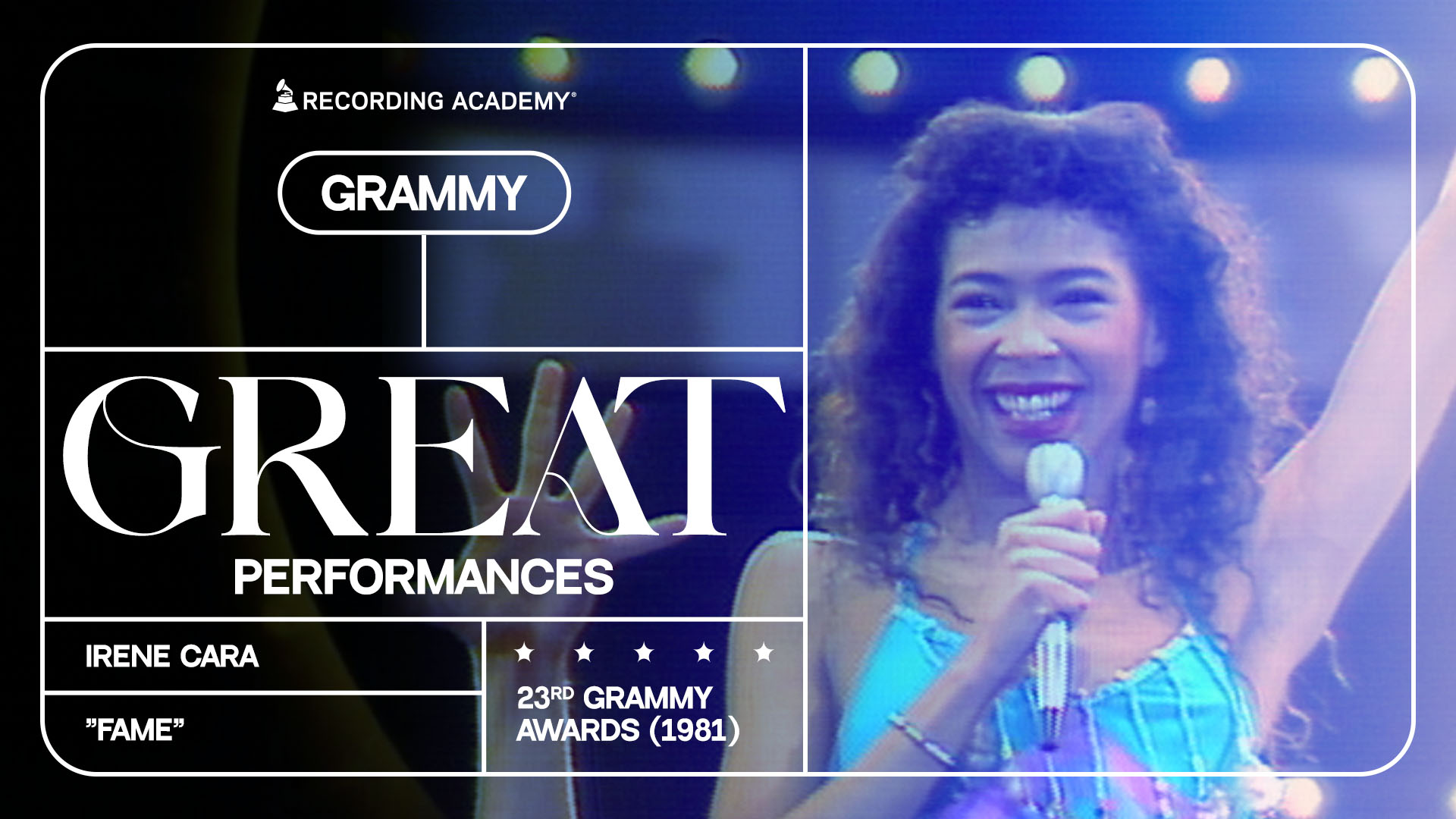
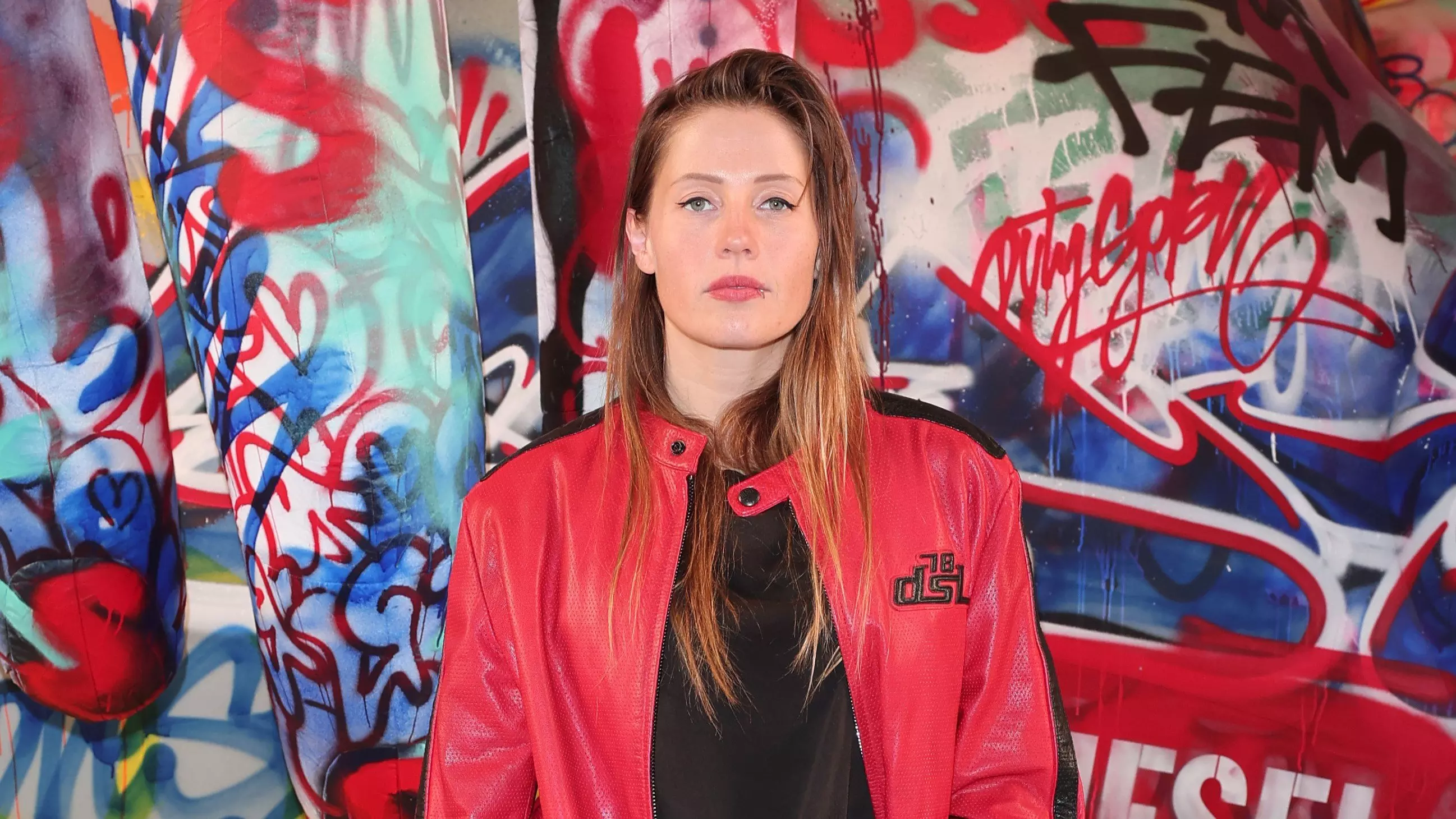
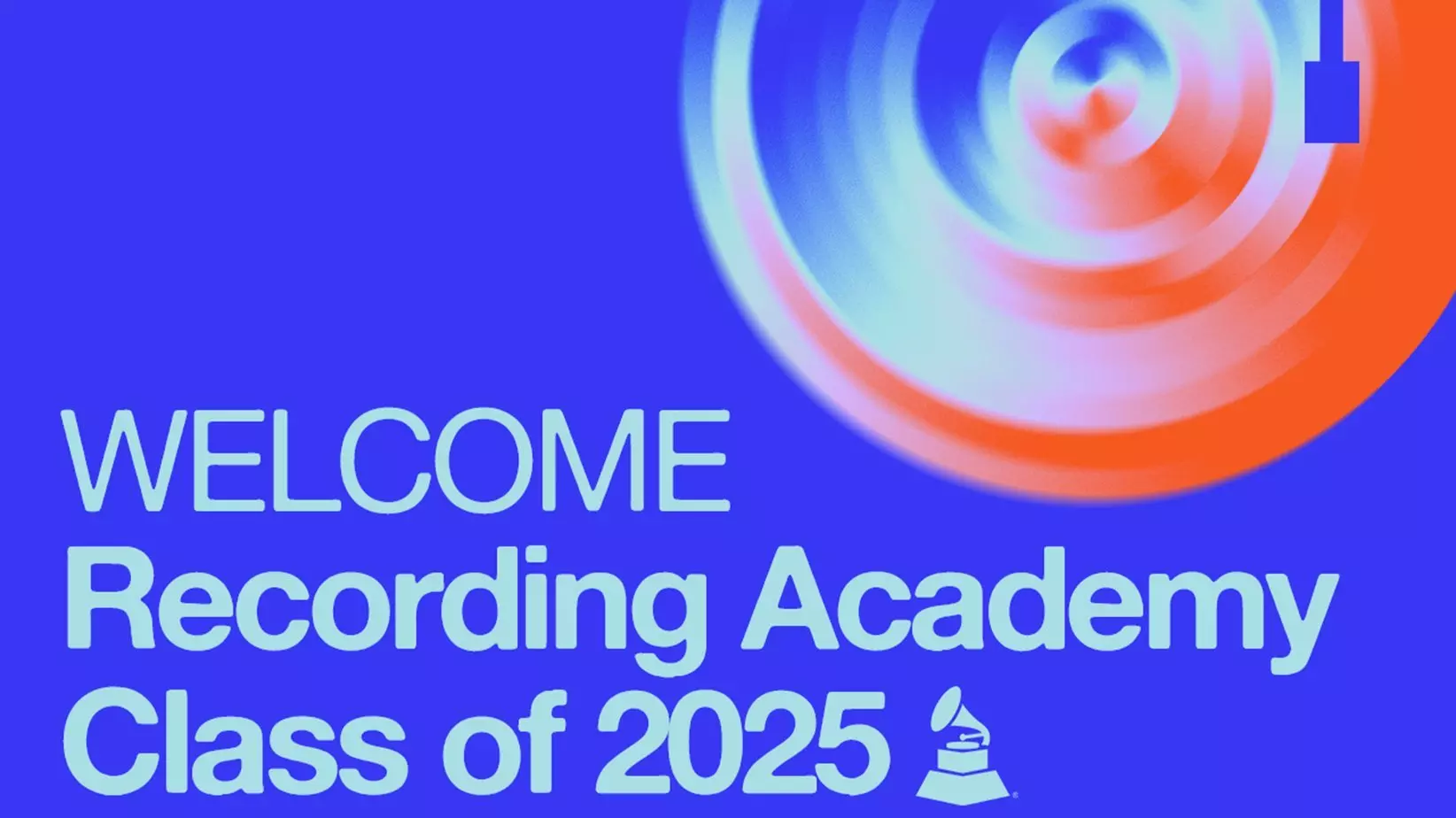
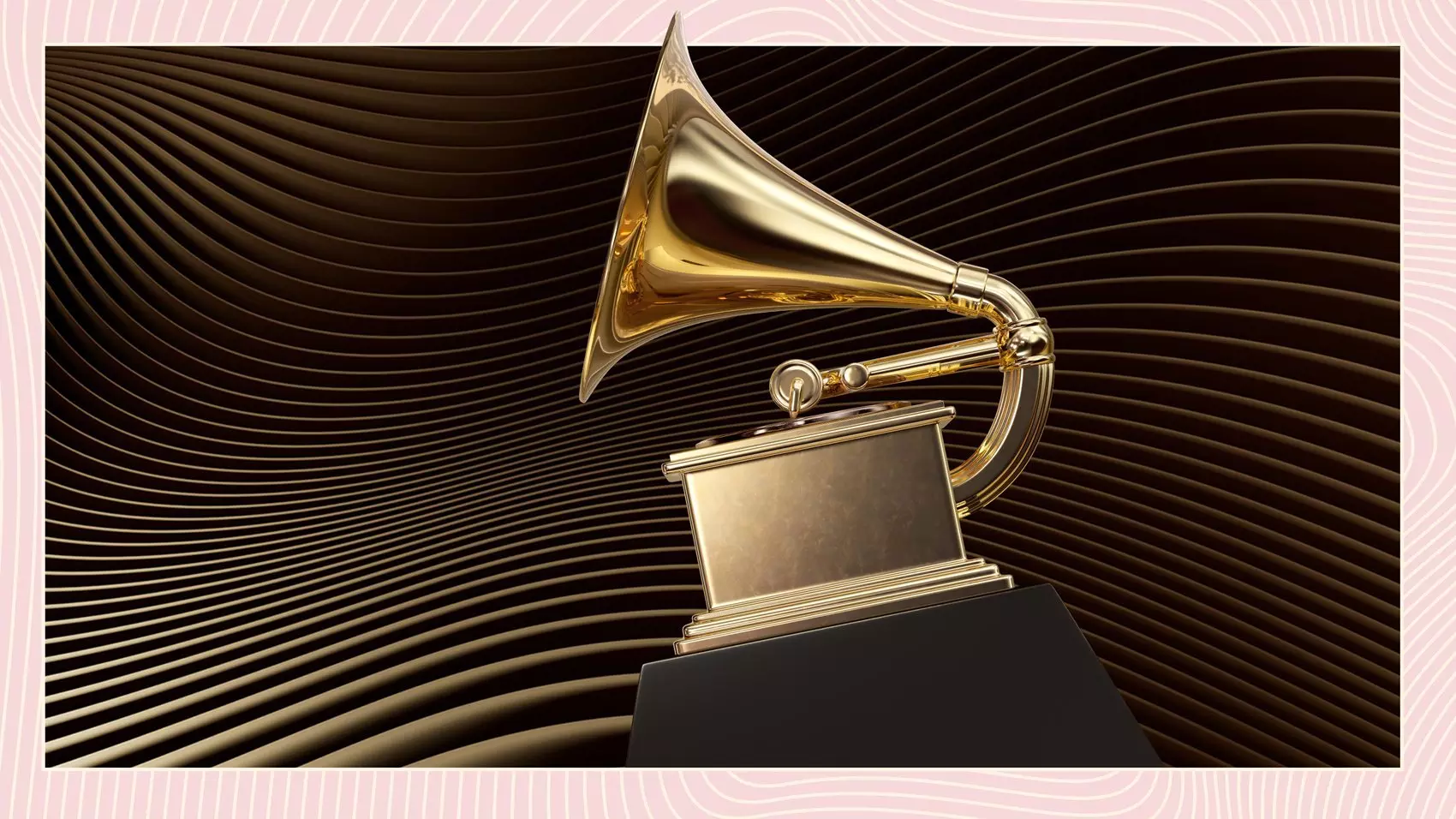
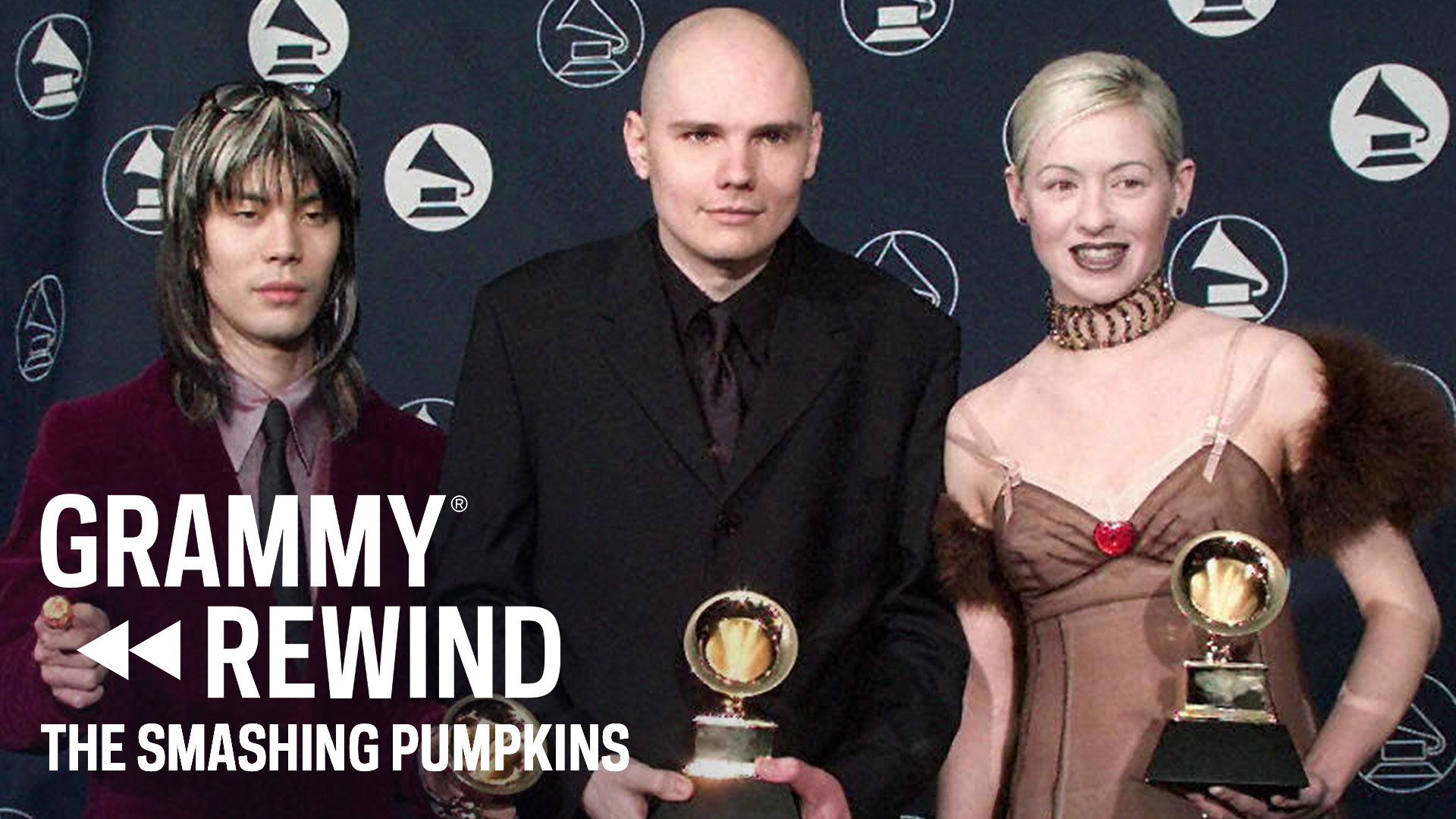
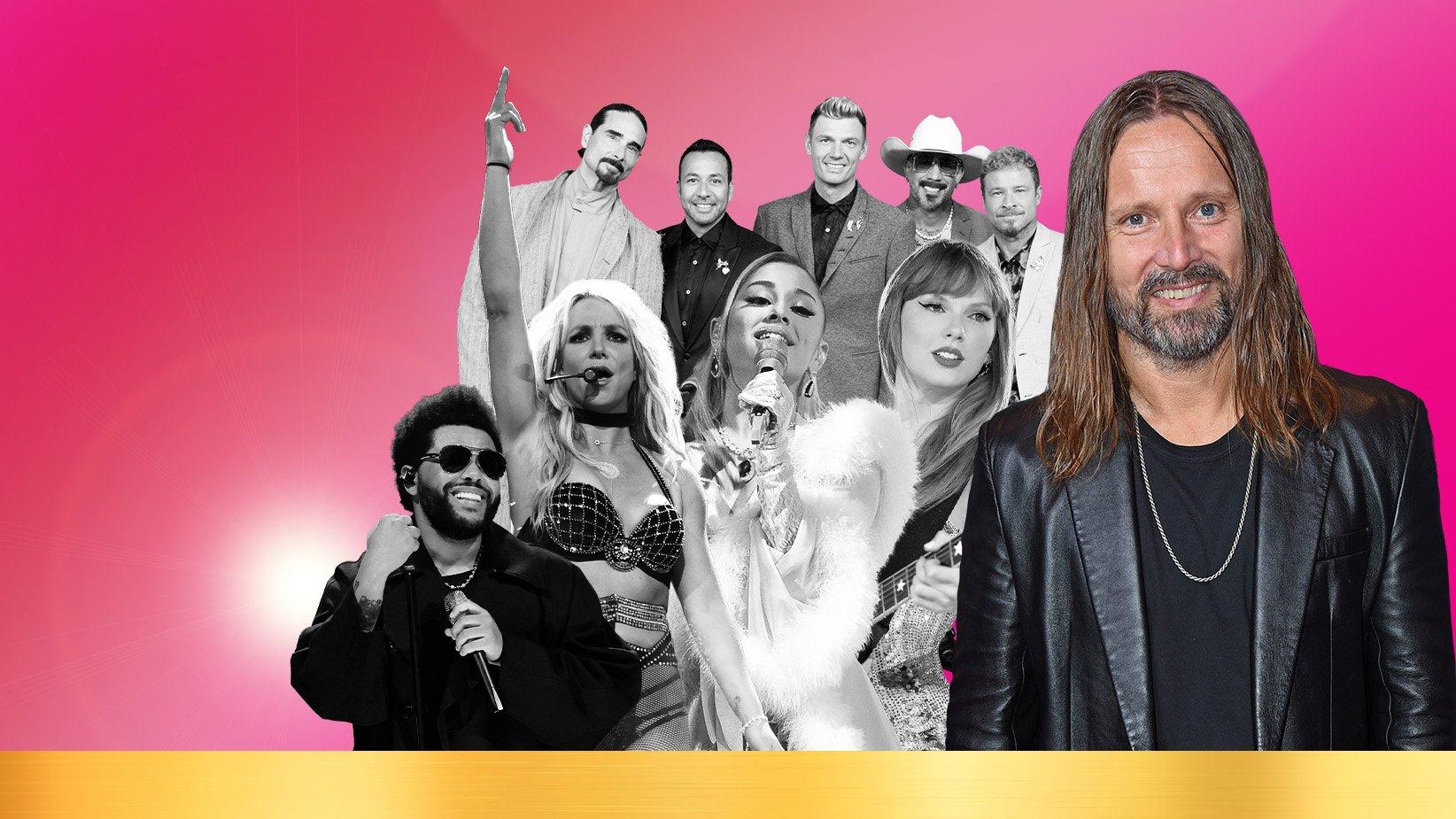
Photo: Ayisha Collins/FilmMagic, Tristar Media/Getty Images, Buda Mendes/TAS23/Getty Images for TAS Rights Management, John Shearer/Getty Images for The Recording Academy, Kevin Mazur/BCU18/Getty Images for BCU, Dimitrios Kambouris/Getty Images for REFORM Alliance
The Many Eras Of Max Martin: How He's Helped Taylor Swift, Ariana Grande & More Dominate Pop Music
In celebration of his reunion with Taylor Swift for 'The Life of a Showgirl,' look back at Martin's illustrious production discography that includes countless superstars — from the Backstreet Boys and Kelly Clarkson to Ed Sheeran and The Weeknd.
25 Billboard Hot 100 No. 1s as a writer, two more as a producer, at least 140 million record sales, five GRAMMY wins and 25 nominations. The stats speak for themselves: Max Martin is undeniably one of the most successful hitmakers in the history of pop.
Still only in his mid-fifties, and with every other Billboard regular still clamoring for his creative prowess, his remarkable career tallies are only likely to grow. That's why Taylor Swift recruited him to help her transition from teen country sensation to pop superstar with 2014's 1989, and why she now refers to him as her "mentor." It's also why Martin, alongside his longtime collaborator (and fellow Swede) Shellback, returned for her latest set, The Life of a Showgirl.
"The three of us have made some of my favorite songs that I've ever done before," Swift said on the "New Heights" podcast upon announcing the album in August. "There's something about 'em … they're just geniuses."
Of course, Swift is just one of countless stars that Martin has helped turn into household names. Backstreet Boys, Britney Spears, Katy Perry, Pink, Taylor Swift, The Weeknd, Ariana Grande — think of any zeitgeist-defining artist from the turn of the century onward, and it's likely that the renowned perfectionist has played a part in their success.
"I like being around people who keep me curious," the famously reclusive Martin explained in a rare interview back in 2019 about the key to his longevity. "Experience might be one part of the puzzle, but beat-making and trendsetting, it's a young person's game. If 200 million people love [something] then I try to understand why. It's almost like science to me; you listen and try to crack the code."
Martin has continued to crack this elusive code for the best part of 30 years. In honor of his reunion with Swift, revisit Martin's own musical eras — from the maximalism of the millennium to the genre-hopping sounds of Gen Z.
The Early Days
Martin officially began his rise to enigmatic pop god in unlikely circumstances: as the lead singer of a Swedish hair metal outfit. Yes, the man of mystery spent 10 years fronting It's Alive under the name of Martin White, with the Kiss-esque outfit recording a self-titled debut in 1991 and a sophomore Earthquake Visions two years later. But he eventually realized his talents lay elsewhere, as did the group's label boss, Denniz PoP, who took Martin under his wing.
The musical prodigy quickly became a vital member of PoP's Cheiron Studios, co-producing for several of his fellow countrymen including techno-country bumpkins Rednex, Eurodance favorite E-Type and the '90s answer to ABBA, Ace of Base (the latter's "Beautiful Life" became the first of his countless Hot 100 entries). By now, Martin had also adopted his more familiar guise, officially waved goodbye to the world of Scandinavian glam metal, and started working with a boy band who'd helped redefine his career for good.
The Pure Pop Years
After dabbling in the boy band world with 3T in 1995, Martin met the Backstreet Boys, and soon his career was on another trajectory. The Swede first worked with the group on "Quit Playing Games (with My Heart)" — which came within a whisker of becoming both parties' first U.S. No. 1 in the spring of 1997 — and contributed to several other classics including "As Long As You Love Me" and "Everybody (Backstreet's Back),"
Proving that he could write for the opposite sex just as effectively, Martin was instrumental in guiding a young Britney Spears to superstardom. In fact, he penned her record-breaking smash "... Baby One More Time" entirely alone. And the instant pop classic provided both singer and songwriter with their first of many U.S. chart-toppers, too.
Martin still kept one foot in the boy band world, however. He provided the breakthrough hits for *NSYNC ("I Want You Back," "Tearin' Up My Heart") which would see them wrestle for the ultimate boy band crown. And he essentially became a sixth member for the sales juggernaut that was Backstreet Boys' Millennium, working his magic on seven of its 12 tracks, most notably the superfan anthem "Larger Than Life" and the group's most iconic hit, "I Want It That Way."
Martin continued to perfect what was now becoming his signature sound — emphatic pop beats, hairbrush sing-along choruses, and happy-sad melodies — throughout the year 2000. He guided Spears' second LP, Oops!... I Did It Again (the pair scoring a second No. 1 together with its title track) and helped *NSYNC achieve their sole chart-topper with "It's Gonna Be Me."
By this point, the prolific talent had also been tapped by Robyn ("Show Me Love," "Do You Know (What It Takes)"), Bryan Adams ("Cloud Number Nine," "Before The Night Is Over"), 5ive ("Slam Dunk (Da Funk)"), and Westlife ("When You're Looking Like That"), and in a surprise nod to his hairspray-soaked roots, Bon Jovi. In fact, Martin penned the rock veterans' biggest hit of the 21st century with "It's My Life." He was also responsible for steering Celine Dion into rare upbeat territory on "That's The Way It Is."
The Promising Period
When the untimely death of PoP in 1998 resulted in the permanent shutdown of Cheiron Studios, Martin joined forces with entrepreneur Tom Talomaa to open his own hit factory Maratone, which later evolved into production companies MXM and Wolf Cousins.
Maratone initially picked up where Cheiron had left off, producing a brace of hits for Spears ("Overprotected," "Not A Girl, Not Yet A Woman"). But keen to leave her pop princess past behind, Spears cut all ties for several years. And with BSB taking a hiatus, and Nick Carter's solo career failing to take flight, Martin suddenly found himself slightly unmoored in 2002 and 2003, despite reuniting with Robyn and Dion.
Of course, you can't keep a hitmaking extraordinaire down for too long. He came back with a vengeance in 2004 with Kelly Clarkson's "Since U Been Gone," a feisty alt-rock affair that immediately proved the inaugural "American Idol" was no flash in the pan; he was also responsible for its follow-up hit, "Behind These Hazel Eyes."
Although Martin was no longer a phenomenon as such, he continued to rack up a string of considerably big hits including The Veronicas' "4ever," BSB's "Just Want You To Know," and a-ha's first major hit in over a decade, "Analogue (All I Want)," in 2005, Pink's "Who Knew" and "U + Ur Hand" in 2006, and Daughtry's "Feels Like Tonight" in 2007. But he truly hit his stride the following year.
The Imperial Phase
Martin went on to have a hand in at least one U.S. No. 1 single every year between 2008 and 2016 — and previously unknown Christian pop singer born Katy Hudson was the catalyst. Katy Perry's provocative breakthrough "I Kissed A Girl" became the Swede's first song to reach pole position since *NSYNC's "It's Gonna Be Me" eight years previously, and it pretty much opened the floodgates.
Reunions with Pink ("So What"), Clarkson ("My Life Would Suck Without You"), and his former pop muse Spears ("3") all spawned chart-toppers. And before you can say "Peter, Paul and Mary gettin' down with 3P," the long-haired maverick was back to being the most in-demand man in the business. Whether talent contest alumni (Adam Lambert, Carrie Underwood), R&B lotharios (Usher, Taio Cruz), or new pop girls on the block (Miranda Cosgrove, Kesha), everyone wanted a piece of the Martin pie.
But his biggest Billboard success came when he reunited with Perry. Martin was pivotal to the record-equaling blockbuster success of Teenage Dream, contributing to four of its five No. 1s including the bubblegum pop of "California Gurls," '80s throwback "Last Friday Night (T.G.I.F)," and the wistful title track.
After giving Spears her final chart-topper with "Hold It Against Me," Martin added another big pop girl to his resume when he helped steer Taylor Swift from country favorite to mainstream sensation. Tabloid-baiting kiss-off "We Are Never Ever Getting Back Together" gave the singer/songwriter the first of her dozen career No. 1 in 2012, a year in which he also gave Maroon 5 their third ("One More Night").
Over the next half-decade, Martin would continue to elevate Swift (Red, 1989, Reputation) and Perry (Prism, Witness) onto the list of all-time greats. He also masterminded The Weeknd's pivot from bedroom hipster to commercial juggernaut ("Can't Feel My Face"), powered Ariana Grande's game-changing sophomore set, My Everything (and follow-up Dangerous Woman), and reconnected with Justin Timberlake on the inescapable Trolls cut "Can't Stop The Feeling."
And we've not even mentioned his Hot 100 hits for Christina Aguilera, Carly Rae Jepsen, Jennifer Lopez, Jessie J, Pitbull, Tori Kelly, Demi Lovato, Selena Gomez, and Ellie Goulding. Even the record industry's savior Adele called upon his talents for 25's third single "Send My Love (To Your New Lover)." Little wonder, therefore, that at the 2015 GRAMMY Awards, Martin took home the coveted Producer Of The Year, Non-Classical — and went on to win four more golden gramophones across 2016 and 2017.
The Record-Breaking Era
Although nearly three years went by without a No. 1, Martin still maintained his stranglehold on contemporary pop, providing hits for both the usual suspects (Grande, Perry, Pink, Swift) and new collaborators (James Arthur, Anne-Marie, Sam Smith). Remarkably, it took until 2019 for the Swede to work with the man who'd been almost as prolific and prevalent throughout the decade. But the wait proved to be worth it, with three of his four cuts from Ed Sheeran's No.6 Collaborations Project topping the UK chart.
His Stateside "drought" was broken later that same year thanks to the gleaming synth-pop of The Weeknd's record-breaking "Blinding Lights." In 2021, he again guided the latter to the top spot on Grande collaboration "Save Your Tears," while another A-list team-up, Coldplay and BTS's "My Universe," repeated the feat, too. In fact, proving how he was now very much accepted by those outside the pure pop field, Chris Martin and co. invited the Swede to produce the entirety of its parent album, Music of the Spheres.
Lady Gaga, Måneskin, Lizzo, Kim Petras, Lewis Capaldi, Post Malone, and Conan Gray all made their Martin bow around this time, too. But it was a regular cohort that helped the Scandinavian achieve his most impressive career goal.
In 2024, Ariana Grande's "Yes, And" became Martin's 24th U.S. No. 1, breaking an all-time record that had been held by George Martin since 1970. And he wasn't done there, either, extending his tally just two months later with Grande's "We Can't Be Friends (Wait For Your Love)." He's now second only to Paul McCartney when it comes to writing the most chart-toppers, too.
The Future
Martin certainly hasn't been resting on his laurels since officially joining the pantheon of Billboard greats. While he's continued to work with The Weeknd, Grande and Coldplay, he's also introduced his studio trickery to the likes of Childish Gambino, BLACKPINK's LISA, and the 2024 Latin GRAMMY Best New Artist winner, Ela Taubert.
Of course, the biggest career development of late (especially for the army of Swifties) is Martin's first collaboration with Swift in eight years. After several albums with the only man likely to steal his hitmaking crown — Jack Antonoff — the future Mrs. Travis Kelce has hired the Swede to oversee her eagerly-awaited 12th LP The Life of a Showgirl.
"When I was on tour in Stockholm, I had Max Martin come out to the show, and I was talking to him, and I was like, 'I just feel like we could knock it out of the park if we went back in,'" Swift told "New Heights" about the musical reunion.
Featuring tributes to silver screen goddess Elizabeth Taylor and tragic Shakespeare heroine Ophelia, a guest spot from Sabrina Carpenter, and a sample of George Michael's '80s classic "Father Figure," the album looks set to reaffirm both names as the most dominant players in 21st century pop.
Latest News & Exclusive Videos





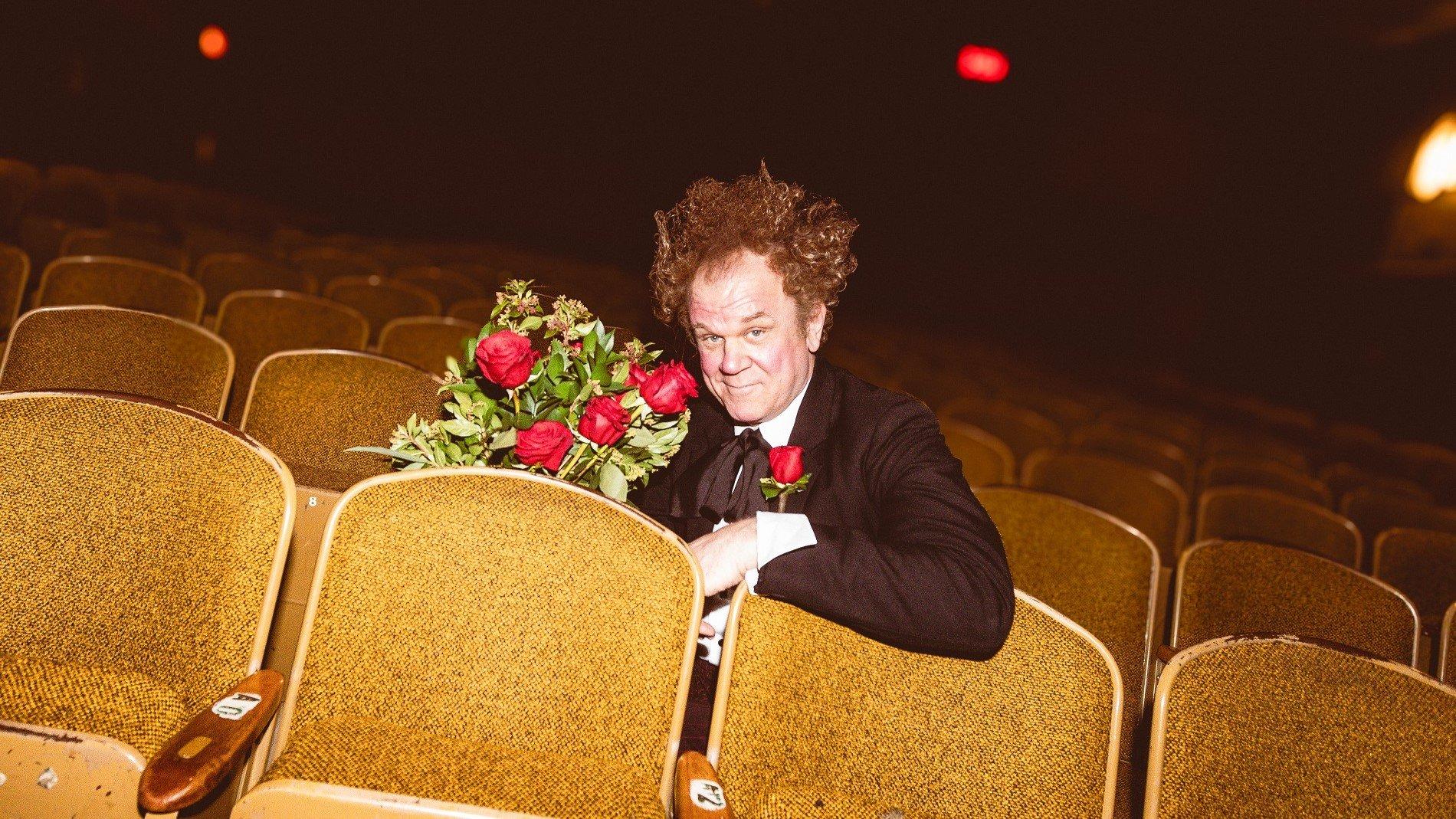
Photo: Bobbi Rich
John C. Reilly Reevaluates The Great American Songbook On 'What's Not To Love?'
"I love the mission of sharing or re-sharing the music of the world with people that might not be aware of it," the GRAMMY-winning singer and actor says. "It's an empathy mission and it's a holy mission. It's a sacred mission to me."
Our concept of Americana and the Great American Songbook is selling us short.
Americana is not just folk music from the 1930s to the 1950s made by white people, nor is the Great American Songbook relegated to a time past. "Americana is everything that America is. It's the blues, it's jazz," says Mister Romantic. Run-D.M.C. counts. "I have a very broad understanding of what the American Songbook is."
That Mister Romantic has strong opinions about the U.S.' iconic musical history may come as no surprise to those who have seen his eponymous vaudeville act. But if you haven’t seen the curly-haired eternal optimist step out of an oversized trunk to search the audience for someone to love each night, you may be shocked to learn that the man behind Mister Romantic, celebrated character actor John C. Reilly, is a singer with depth and study.
Reilly’s debut album under the moniker Mister Romantic is What’s Not To Love?, a collection of 13 tracks fitting the singer’s wide-ranging view of the Songbook. The first release on his own Eternal Magic Recordings, What’s Not To Love? includes multiple Irving Berlin tracks, three songs by Tom Waits, and others made famous by Frank Sinatra, Louis Armstrong, and Marlene Dietrich. Reilly’s gentle baritone is the perfect vehicle for these classics, and imbues each with the same earnestness he brings to screen and stage roles.
"Young people who are coming to my shows who might only know me from Step Brothers are being exposed to these songs again," Reilly tells GRAMMY.com. "There's been times where I felt like, Are you crazy? You're a successful movie actor. You don't need to be going out there and losing money doing shows, singing old songs that younger people might not even be aware of. But I thought, Who else is going to do it?"
While What’s Not To Love? is classic-but-not-classical in sound, Reilly cherry picked the album's track listing based on compelling storytelling and a "kind of magic, eternal quality." Ray Charles' 1962 track "You Don't Know Me" becomes less Modern Sounds in Country and Western Music and more of a timeless, cinematic ode. With his cover of Waits' 1983 song "Johnsburg, Illinois," Reilly draws a direct line between The Prince of Melancholy and Tin Pan Alley. Lead single "Dream" — a 1944 Johnny Mercer song previously recorded by Sinatra and Roy Orbison — is both ethereal and oceanic.
Further reading: A Comprehensive Guide To Tom Waits’ Evolution From L.A. Romantic To Subterranean Innovator
Reilly's experience with such classic songs (as well as classics of contemporary storytelling, a la Waits) reflects his lifetime relationship with music. He grew up in a euphonious home and played guitar in a handful of blues bands, briefly acting as the lead singer of his brother's band, Shark Fighter. Reilly also performed in many musicals in his youth; he continued to perform musical theater as an adult, and decades later, received an Academy Award nomination for his role as Amos Hart in the 2002 movie musical Chicago. When he wasn't singing showtunes, Reilly upped his twang. "Walk Hard," the title track and apex of the beloved Walk Hard: The Dewey Cox Story, was nominated at the 2009 GRAMMYs. Reilly has performed less farcical bluegrass efforts as John Reilly & Friends and as John & Tom for Jack White's Third Man Records.
Now, as Mister Romantic, John C. Reilly simply wants to bring love and empathy to the world. While his version of the Great American Songbook may be non-traditional, it celebrates humanity. "The world of entertainment and audiences have been very good to me and very generous. And so, in a way, [What's Not To Love?] is like giving a gift back."
Ahead of his album release on June 13, Reilly spoke with GRAMMY.com about the music that moves him, the importance of optimism, and what he considers to be the "key to civilization."
I'd love to know some more about your origins with the Great American Songbook. I read that you had a player piano at home growing up, and your mother was into this era of music.
My mother, God rest her soul, was a wonderful piano player herself, but we also had this player piano with all these paper rolls of all these old standards. That's where I first heard a lot of these old standards.
There was a lot of music around my house and I was doing musicals from the time I was a kid. If you do "Brigadoon" or "Oklahoma," those shows are part of the Great American Songbook in a way. Irving Berlin wrote musicals.
It's really curious, this idea of the Great American Songbook or Americana. If you ask a younger person "What is the American Songbook? Who's in the American Songbook?", I'm not sure they would mention Irving Berlin. They would mention the things that resonate with them and that are part of their American story.
I'm really excited about this part of releasing this record. When Harry Nilsson released A Little Touch of Schmilsson in the Night with all these covers of these old songs, that was a revelation to me. I discovered so much music because Harry Nilsson decided, Forget the commercial market... I want to share the stuff that really made me who I am.
I'm not saying I'm like Harry Nilsson or Frank Sinatra. I'm not in the league with those guys, but I have the same mission as they have: Let's keep this music alive. Let's sing it for people, whether they know it or not. It's something I'm really proud of with the record.
As you should be. People need different avenues for learning about important pieces of artistic history.
I had a bluegrass band, John Reilly & Friends, and young people would come up to me afterwards all the time, like, "I can't believe you wrote all those songs." I was like, "I didn't write a single one of those songs."
Whether it's these American Songbook songs from this record or the bluegrass songs that we used to do, these songs are everyone's songs. They're America's songs. It's almost like they're seashells on the beach. Just because I pick up a seashell and I say, "Isn't this a beautiful one?", that doesn't mean it's my seashell, it's yours. The beach is as much yours as it is mine.
I’m personally a little uncomfortable with the necessary self-centeredness of presenting music that you've written, that's just from your point of view. I love the mission of sharing or re-sharing the music of the world with people that might not be aware of it. It's made my life so much richer.
Learn more: 10 Comedians Who Are Also Serious Musicians: Seth MacFarlane, John C. Reilly, Steve Martin & More
Well, you're an interpreter, right? You do that on stage, on screen, and in all of the various musical projects that you have.
Absolutely.
Given you have such an expansive vocabulary for what is considered the American Songbook or Americana, how did you choose these songs in particular?
The inspiration for [Mister Romantic] was this character I played in Chicago and my own connection to the American musicals. I really loved performing like that in that vaudeville style and that very direct, very sincere, very emotional, very trying-to-connect way of performing. And so I kept thinking, How can I keep that going? The first song that actually made me think I could come up with a character that could sing this was "What'll I Do?" by Irving Berlin.
It’s taken me all this time to collect these songs. And, really, the criteria [for inclusion on the album was] songs that just moved me right away, that touched my heart. Or there's something about the chemistry of those notes when they're put together, I just can't forget that melody. Millions of songs are written every year; the ones that last seem to have that magical, eternal quality to them.
Are there any particular songs or songs on this record that moved you?
I'm proud of all of them, and mostly when I listen to the album, what I hear are these virtuosic musicians. It's a real democracy, the way we work in the band. So when I listen to it, I'm like, Wow, listen to what that collaboration brought. Look at this bit of beauty that we brought into the world that wasn't there before, through our cooperation and our loving each other and our respecting each other.
I could have done this, like, just hiring a band who are interchangeable people and taking it on the road as this kind of a vanity project: John C. Reilly sings your favorite tunes. But I just did not want to do that. I'm allergic to that idea. I don't like to traffic in the world of, "I'm a celebrity. I have value as a performer just because I'm famous."
I want it to earn its keep. I want it to earn its place in the world, and by picking songs like the ones we've picked, I knew if we do even a halfway decent job, it's going to be pretty cool to listen to.
One of my favorite songs was "Falling In Love Again," as recorded by Marlene Dietrich.
I did change the lyrics. When Marlene Dietrich sings that song, she says "Men cluster to me like moths around a flame/ and if their wings burn, I know I'm not to blame." I reversed it. I said "I cluster to them like a moth around a flame/ and if my wings burn, I know I am to blame. But I can't help it. I can't help it."
I wanted the song to be universal. I didn't want it to be just about the way Marlene Dietrich interpreted it. I wanted it to mean something to me too. And I'm not Marlene Dietrich, I'm not a woman. And the character is also not someone who's like, "Oh, they all love me, but I just cast them aside." That's Marlene Dietrich's act.
My act is like, "I got to find someone to love me." Just a few little subtle changes in the lyrics do that. And in a way, part of the universality of the [stage] show is…Mister Romantic [has] been traveling the world in this trunk being carried around by these musicians for thousands of years. He doesn't know where he is. He doesn't know what happened before. All he knows is tonight he's going to try to connect with you. There's something really beautiful about that. And it frees me, and it frees the audience.
There's been times where I felt like, Are you crazy? What are you doing? You're a successful movie actor. You don't need to be going out there and losing money doing shows, singing old songs that younger people might not even be aware of. But I thought, Who else is going to do it?"
If you see an opportunity in the world to do something good, it's on you.
I was going to ask you if you saw Mister Romantic and yourself, John C. Reilly, as separate entities, but it sounds like this is just another side of you as a performer.
In a way, all characters that I've played are another side of the same coin. What you really do when you're an actor or you're interpreting music is you're trying to relate some part of yourself to this artistic creation. It's not just me, it's larger than me.
This [music] is all part of the history of human beings, and I think all of us have a responsibility to keep our most important stuff alive by sharing it with each other and remembering it. This goes back to the old storytelling around the campfire, the way those stories are remembered and the way they're carried over into the next generation. Those stories are told; they're not just archived somewhere that you listen to on your computer once in a while. You go and you experience it and you hear the words.
[Some] people come see the ["Mister Romantic"] show and say, "I knew every single song that you sang, but you know what, John? I heard it for the first time."
Oh, wow. That must be a deep, deep compliment.
One of the values I bring as an actor is that I'm not just someone who's trying to sing very well or interpret music very well. I'm someone who's trying to tell the story of the song to you. I'm trying to make it real. I'm not just presenting this music. I'm trying to play the character [in the song] so that you can relate to it. It's an empathy mission and it's a holy mission. It's a sacred mission to me.
In your show and on this record, Mister Romantic is an eternal optimist. But we live in dark times on a multitude of levels — does creating wistful and romantic and optimistic art like this require a kind of character?
There are definitely dark clouds in our world right now and people with bad impulses and power, but I also think there's a lot of light out there. When I go out into the world, I see light all the time. Granted, I'm a well-known person, so people are usually coming to me with good news, like, "Hey, I love you."
I do think that [Mister Romantic is] there for everybody. This show was born out of not only despair, but also joy. I'm not trying to deny what's going on in the world by making the character, someone who's unaware of it. I'm trying to address it. People need more empathy. We have to be reminded that love is worth doing. It's not corny to listen to a song about how much someone loves you. That's just eternal.
If we just give up on that stuff, then the darker forces do take over. Human beings have been around a long time and there's been some majorly dark episodes in our past, right? But we made it through somehow. And part of it is that we didn't lose our faith in love. We didn't lose our belief in the idea that human beings are worth loving, even if you don't know them.
What other choice do we have? And that's why I'm not so threatened by the destructive forces in the world right now. Destructive energy destroys everything in its path, including itself.
And I think the key to civilization is love. Civilization works because we all agree, "You know what? You deserve some respect and you deserve some love because you're a human being like me." That's the cornerstone of civilization to me, and so that's why I did this. Before I die, I want to make sure I said this to the world. The world of entertainment and audiences have been very good to me and very generous. And so in a way, it's like giving a gift back.
It must feel so great to have that sense of love and sincerity with you whenever you're thinking about this music or performing this music. I imagine it fills your soul.
It does. I'm not immune to being depressed or getting discouraged or being angry about something I'm seeing in the world. But Mister Romantic just sees the moment right then: Don't worry about what's happening outside these walls right now; what's happening in here is what we can create together. Every time I do this show, something beautiful happens.
It’s in service of a higher aspiration. You could call it God. You could call it a higher power. You could call it whatever. There's something that's not commercial about that. It has nothing to do with capitalism saying that human beings matter. But it's important to say, and it's real.
I'm curious about the Eternal Magic recordings. Why did you want to start a label?
I had to! I paid for these recordings and we did it all. I was like, "Well, let's just see what happens. Let's go to the studio and let's record." And we recorded like Louis Armstrong used to record: All of us just in a room, live, no auto-tuning, no tracking, no overdubbing.
So we brought it to a couple [of record labels], and one of the first things they said, "Well, you got to give us the rights to the masters." I'm like, "Why would I give you the masters? Because you need to tell the world who I am? The world already knows who I am." So we got this amazing distribution deal from Secretly Canadian, which I'm really grateful for.
But there's only one album on Eternal Magic recordings, and it's this one, and it's because it was just like, "Well, I guess I'm the label. I paid to make the record, so I guess I'm the label." So I hope people like it.
I think they will. How could they not?
What's not to love? That's why I called it that.
Latest News & Exclusive Videos





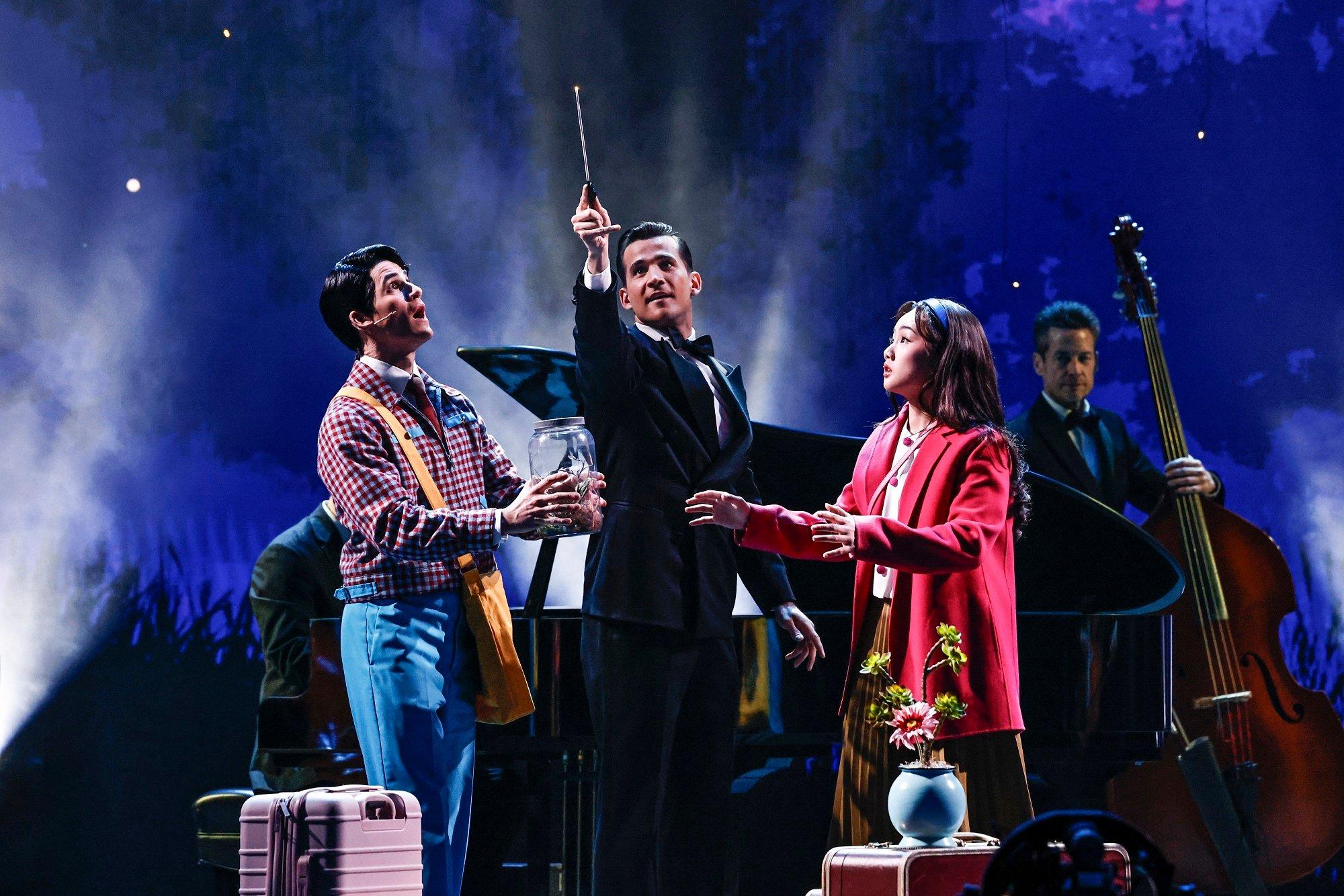
Photo: Michele Crowe/CBS via Getty Images
2025 Tony Awards Recap: Musical Theater Wins & Exciting Performances
From the big wins for "Maybe Happy Ending," including Best Musical, to the "Hamilton" reunion and joyful performances by host Cynthia Erivo, the 78th Tony Awards shone bright.
Broadway had one of its biggest years this year, between A-list stars gracing the stage, exciting new musicals, and highly anticipated revivals.
Held June 8, the 78th Tony Awards proved to be a fitting celebration. The awards ceremony featured performances from all Best Musical nominees, as well as tributes to beloved shows from the past and bright new stars.
Host, Wicked star and GRAMMY winner Cynthia Erivo began the evening with a soaring opening song — an original by Pasek and Paul with Mark Shaiman — celebrating the year’s shows. The crowd at Radio City Music Hall in New York City jumped to their feet as Erivo took her mic into the audience and had original "Wicked" cast member Kristin Chenoweth, along with Aaron Tveit and Adam Lambert, sing along from their seats.
Read more: Cynthia Erivo’s Evolution: How The Actor & Singer Embraced Her Whole Self On 'I Forgive You'
Among the evening's highlights were Megan Hilty singing an affirming and highly theatrical number from "Death Becomes Her," complete with Liza Minelli and Judy Garland costumes. GRAMMY winner Johnathan Groff stole the show when he took his "Just In Time" performance into the audience and climbed atop Keanu Reeves, who seemed to be happy to participate.
Beyond the nominee performances, major moments included a "Hamilton" 10-year reunion which featured a medley of songs from the GRAMMY- winning show sung by members of the original Broadway cast.
For the Tony's "In Memoriam" performance, Erivo joined two-time GRAMMY winner Sara Bareilles to sing a harmony-infused duet of "Tomorrow" from "Annie" — a song written by Charles Strouse and Martin Charnin, both of whom passed away this year. The segment also honored screen actors who also performed on The Great White Way such as 28-time GRAMMY winner Quincy Jones, James Earl Jones, and Dame Maggie Smith.
When it came to the awards themselves, there were no absolute shoe-ins for any of the major awards. One race that was anyone’s game was Best Musical. The nominations this year for Best New Musical were "Death Becomes Her," (adapted from the 1992 Meryl Streep film), "Maybe Happy Ending," an original piece about robots in love, and "Buena Vista Social Club," based on true events surrounding the Cuban band’s album of the same name. "Dead Outlaw," which had the creative marketing scheme of plopping a casket with an actor outside around New York, and "Operation Mincemeat" based on a World War II British deception operation were also nominated in the category.
"Maybe Happy Ending" was the evening's big winner, with six awards including the coveted Best Musical. It also took home awards for Best Book and Best Original Score, with Will Aronson and Hue Park taking home the trophies.
While they didn’t win for Best Musical, the musicians who make up "Buena Vista Social Club" received a special, noncompetitive Tony Award for their work in the show. The musical also won for Best Orchestrations.
One of the most talked about categories this year was Best Revival, particularly because of the powerhouse actresses leading the top two contenders. Frontrunners in the category were "Sunset Boulevard," which had Nicole Scherzinger in the leading role, and "Gypsy" led by Audra McDonald. The two-time GRAMMY winner also has the most Tonys of any performer, ever and has them in all four of her eligible acting categories. Scherzinger prevailed and won for her performance of actress Norma Desmond as did "Sunset Boulevard," which won for Revival.
The Best Actor category was also highly competitive this year, with two actors playing recording artist legends, James Monroe Inglehart as Louis Armstrong in "A Wonderful World: The Louis Armstrong Musical," and Jonathan Groff as Bobby Darin in "Just in Time." Had he won, Groff would have made history for getting two consecutive leading actor Tonys (he took home the Best Actor award in 2024 for "Merrily We Roll Along"). However, his former "Glee" co-star Darren Criss won yet another award for "Maybe Happy Ending."
Erivo declared at the top of the show that "Broadway is definitely back," and the proof is both on the stage and at the ceremony itself. With stars flocking from TV and movies to work onstage, shows making more money than ever, and innovative takes on new and returning shows, it does seem that live theatre is stronger than ever.
Latest News & Exclusive Videos





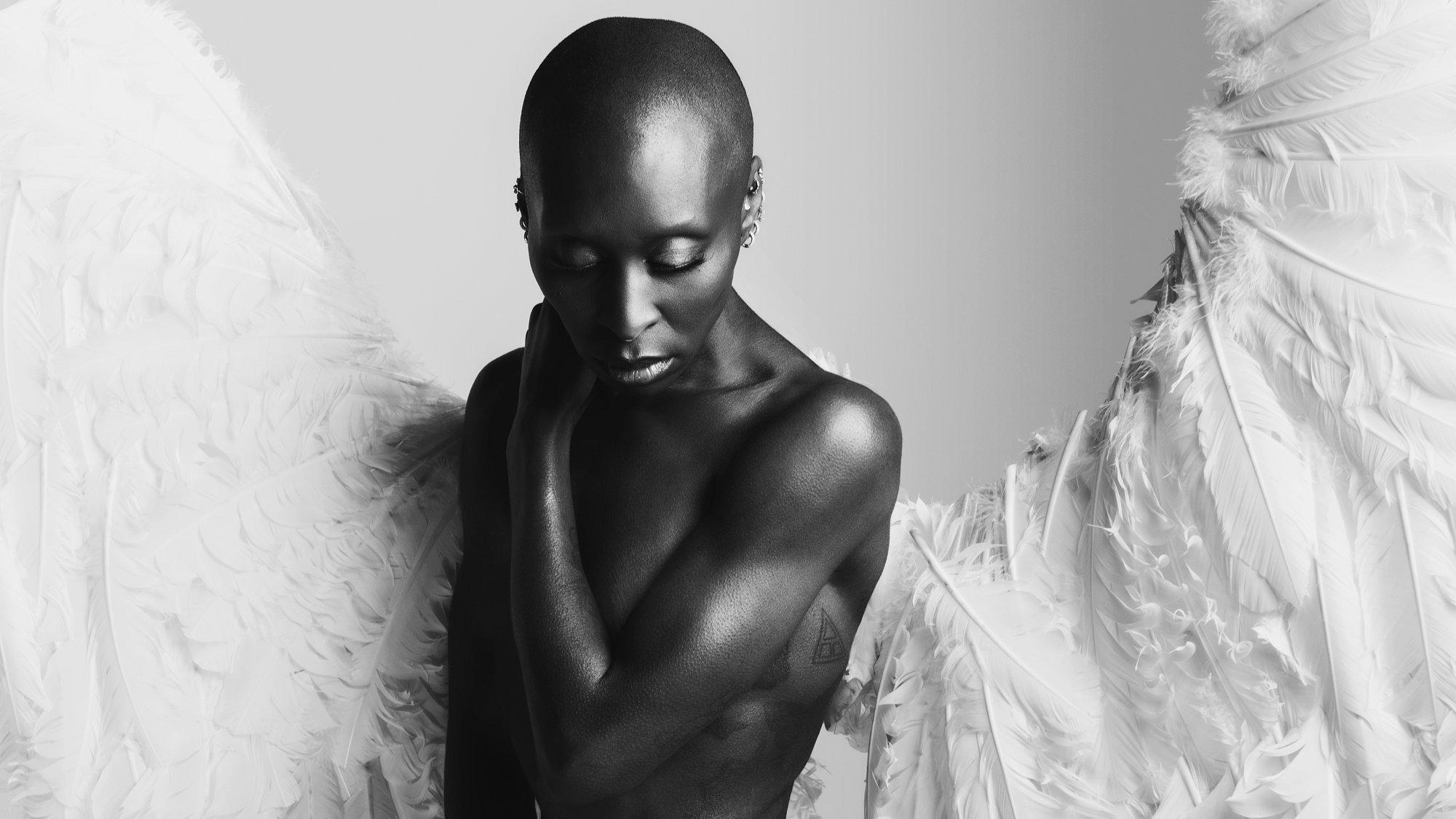
Photo: Norman Jean Roy
Cynthia Erivo’s Evolution: How The Actor & Singer Embraced Her Whole Self On 'I Forgive You'
Ahead of the album's release and her role as host of the 2025 Tony Awards, Cynthia Erivo details her arrival at 'I Forgive You.' "That discovery of self keeps happening," she says.
Cynthia Erivo's I Forgive You has a simple but powerful premise: Amidst emotional toil, embrace the vulnerability and the imperfections that make us human.
"The more I've grown to know who I am, the more I've become more of myself," Erivo tells GRAMMY.com. "[I'm] taking on the parts of me that might not be perfect. Taking on the parts of me that I love has allowed me to free up who I am and become more creatively daring."
The GRAMMY winner has endeared audiences worldwide with her charisma, authenticity, and versatility since starring in “The Color Purple” on Broadway and London's West End between 2013 and 2015. These, plus her dedication to craftsmanship, have made her the recording, film, and stage artist she is today.
But with her sophomore album, Erivo has doubled down — betting on herself and determined to shatter socially and self-imposed boundaries.
"I just let myself be free."
The luminous and ambitious I Forgive You ripples with R&B, pop, and folk, but even such categories cannot fully capture its depth. Erivo lets her unmistakable vocal prowess weave through the beats, vocal pedals, and swelling string crescendos. She shares her innermost observations about the torturous pain of heartbreak, the tender intimacy in partnership, and the emotional clarity that signals that healing is nonlinear.
Her voice radiates delicate warmth, speaking slightly above a whisper, protecting the instrument that has given her so much over the years. "In every song, there are things that you're hearing in there that you might not realize are actually me sampled or me making the sound. There are drones in there and basses in there that are in my voice," she says. Kevin Garrett's voice appears in "Holy Refrain," but everything else is Erivo.
As Erivo shares the technical aspects that went into crafting I Forgive You, it seems that, for the first time, she understands the greatness
of this musical facet of her artistry: it's a complete portrait of herself. She has never sounded more comfortable in her skin.
Cynthia Erivo spoke with GRAMMY.com about her most mature album to date, her pursuit of liberation as an artist and woman, and more.
We last saw you in the film adaptation of Wicked, where you earned an Academy Award nomination. This time, you're singing as yourself and not a character. What was the process of returning to your music like?
I don't think I've ever left music. I've just been doing other things at the same time; I wrote the last album a while ago. I've always wanted to come back but have been a little bit apprehensive about it, and felt like I didn't really have the right team, and the time was filled with mostly live performances, film, and TV.
Being in the space of doing all that and creating made me miss it, and so it felt like it was just time to get back to something I knew, loved, and connected with.
Read more: 'Wicked' Composer Stephen Schwartz Details His Journey Down The Yellow Brick Road
I Forgive You marks a turn from your 2021 debut album, which was heavily influenced by contemporary soul. It feels very liberated.
I think that for [Ch. 1 Vs. 1], I felt like it was going by the formula, trying to fit a formula that I thought might work, and I don't think I was fully being myself, and I didn't really get the chance to pick the writers I wanted to work with. I didn't feel like some moments on that album feel very much like me, and there are moments where I'm filling in the blanks, almost.
But this time around, this was all me. This was all informed by things I listened to when I was younger, things I loved, so it just sort of happened. I didn't put pressure on myself when it came to creating songs in different genres. Once you put a melody down, the song sort of wrote itself, and I wouldn't try to make it into something else. If it came out feeling like a country song, came up like a country song, if it came out feeling like a folk song, if that song came up feeling like R&B and gospel, that's how it came out. These things are part of the DNA of my musical taste and what I've grown up with, so I just let myself be free.
How did you reach this creative, musical emancipation?
This was a quiet conversation I had with myself. It was like, Do I try to make this a particular type of album? Am I gonna adhere to making it a particular kind of album, an R&B or a soul album? Then I just stopped and said, No, I think I'm just gonna write. Whatever comes out, whichever are the songs I love, are the songs that I love, and whichever are the songs that tell the stories I want to tell will be the songs on the album.
You collaborated with songwriter Justin Tranter on this album. How does your collaboration look in practice?
Justin would come in, and he would say, "What are we feeling like doing today? Do we want something deep? Do we want sexy? Do we want something loving? What do we feel like?" And I'd say, "Well, I think I want to write something that's loving. I want to write something that's kind of upbeat but sweet, kind." And then he goes, "Okay, so what about this?" And then I'll go, "I don't like that suggestion."
And then I bring up my pen and paper, and Justin is excellent when it comes to sitting back and stepping out of the way to let me write. I'll relay the lyrics to him, and he'll say, "That sounds really cool, but what about…" and he'll make a small melody change that changes the entire thing in the way that I wanted to because it helps them to come through once that song is completely recorded.
Justin will listen to it, and I say, "Oh yeah, I know you. But what if we add this bass right here? What if we add this whistle right here, or add your nails instead of a clap?" That's what Justin is really beautiful at doing: making sure the finer details are also taken care of. I look for those things. But when you have someone like Justin in the room, you can trust that those things will be handled. So you could just kind of go.
Speaking of details, the songs in this album mostly feature sounds from you. Can you walk me through the reason for adding a string section in "You First?"
I love the sound of strings, but there's a tonality in the quality of texture they bring that you can't really do with a voice. It opens everything up and makes things more dramatic. And you can accent a storyline with the right string orchestra.
Tell me about the child whose voice is featured at the end of "Grace."
The child at the end of "Grace" is Grace. She passed away when she was about 13. I met her last year when she watched Wicked. Then we started sending videos to each other, and I finally had a FaceTime with her. She was a sweet, sweet girl, and that was a message she had sent me.
You beautifully chronicle the contradictions of being human and our ability to transform and change. Was there a song on the album that had the most significant transformation from when you began working on it to the final version that will be released?
"Holy Refrain," I wrote it four years ago and didn't finish it. It was a different song, and it had no backgrounds on it, and it was just one vocal line that was a very simple melody, and then, we finished it, and it became what it has become: this big, all-out love song. It was a very simple folky-type song before it became what I think is very gospel, so that song had the biggest transformation.
"Brick By Brick" had a big transformation as well. Before, it was like one verse and one chorus, and the structure changed as I understood what it was that I really wanted to say.
My introduction to you was "The Color Purple" on Broadway in late 2015. What's your relationship to Broadway now?
I'm going to be hosting The Tonys. I'm still very close, and I see as much as I can. This time, I get to see almost everything. I haven't disappeared, that's for sure. I may be back soon. Once you have the Broadway bug, you can't leave it forever. It's something you always get back to. It's like sharpening the tools.
How has your musicianship and self-preservation evolved with your internal identity and relationship to yourself?
My choices as a musician have become more adventurous, trying new things with my voice, like at the end of "More Than Twice," that sort of ululating, which I've never done in public. I've never done it on anything. It allows me to play with the use of breath and the falsetto.
When you find out who you are fully, you get to find out who you are as a musician fully, so that discovery of self keeps happening. Writing this album has been really freeing. I got to really dive into the love I have for music, the love I have for making it, not just singing, but the making of it, the sound of a violin and the difference between a cello and a double bass, the difference between the soprano sax and a saxophone and going back to the root of who I am, those things that I knew when I was younger and learned about when I was younger, I get to now express and share as well as a musician.


